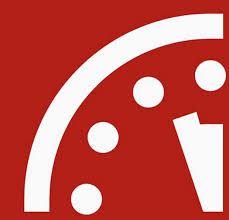Friends,
Well, well, well... The fallout (just had to use that one) over missile defense has gone global. U.S. Defense Secretary Robert Gates got in his two cents in a New York Times editorial in response to criticism of the new U.S. plans: A Better Missile Defense for a Safer Europe. Gates' opening line speaks volumes, and not just about missile defense in Europe, but missile defense in general. "The future of missile defense in Europe is secure." Although missiles in Poland and the Czech Republic are history, in reality missile defense in Europe has only been deferred until a later date (as explicitly stated by Gates). So what's new? Nothing really.
One way to look at U.S. missile defense is from the perspective of Pentagon contractors. Boeing loses out (for now) as ground-based interceptors in Europe shift to ship-based interceptors (a huge boon for Raytheon). Boeing also lost out (for now) as the airborne laser (think of a 747 jet modified with a huge chemical laser to shoot down missiles) program that the Obama adminstration recently cancelled. Of course, you can imagine that Boeing is working on other uses for the airborne laser; they won't be letting this baby go any time soon.
In the big picture, these losses and gains are just another day in the life of "defense" contractors, part of an endless game, one that has no end but in which the score keeps changing in favor of one team and then another. There seems to be a "gentlemens" agreement in which all the teams know that they will ultimately get their share, so they don't play hardball to often. They all know how much (profit) is at stake, and how much they all need each other in this intricate web of defense projects.
Of course, there will always be members of the U.S. Congress protecting (missile) defense jobs in their home states just as with the F-22 Raptor or C-17 Globemaster. In the case of the C-17, with "more than 650 suppliers and 30,000 jobs in 43 states", Congressional support is pretty much guaranteed. Then again, the Secretary of Defense can simply throw out a few key phrases about what kind of missiles Iran may be capable of producing, along with his concerns over "outdated" intelligence assessments, and the future of missile defense is good as gold (a little fear works wonders).
Projects like the Airborne Laser are like sacred cows (excuse the analogy); once the government starts pumping money into the research and development phase of a program this massive it is pretty hard to put on the brakes, particularly once it's "airborne". Long before President Obama announced the cancellation of this project, Boeing had been "developing additional missions" [read "guaranteeing the survivability of this program through mission diversification"]. Essentially, Boeing will look for anything and everything to shoot at to ensure that this baby flies.
And that is the way of defense contracting in today's competitive market. They are just applying some old fashioned thinking - If at first you don't succeed, try, try again (and in every imaginable way). And try, they will. So, don't cry for Boeing for the loss of a few missiles in Europe. It will all come out in the wash, and their stockholders will be very, very happy down the road.
However, one has to wonder if the U.S. put a fraction of the money spent on missile defense into positive engagement with Iran - diplomacy, people to people exchanges and trade - might we get a better return on our investment, including a peace dividend? And might we be just a bit safer than in a world bristling with missiles, since missiles (defensive or not) seem to beget more missiles?
Peace,
Leonard
No Nuclear "fire and fury" Ever Again! Preventing the Unthinkable!
-
Dear Friends of a world free of nuclear weapons,
I wouldn't normally send another GZNonviolenceE-Newsletter so soon, but
these are anything but normal ti...
6 years ago












No comments:
Post a Comment